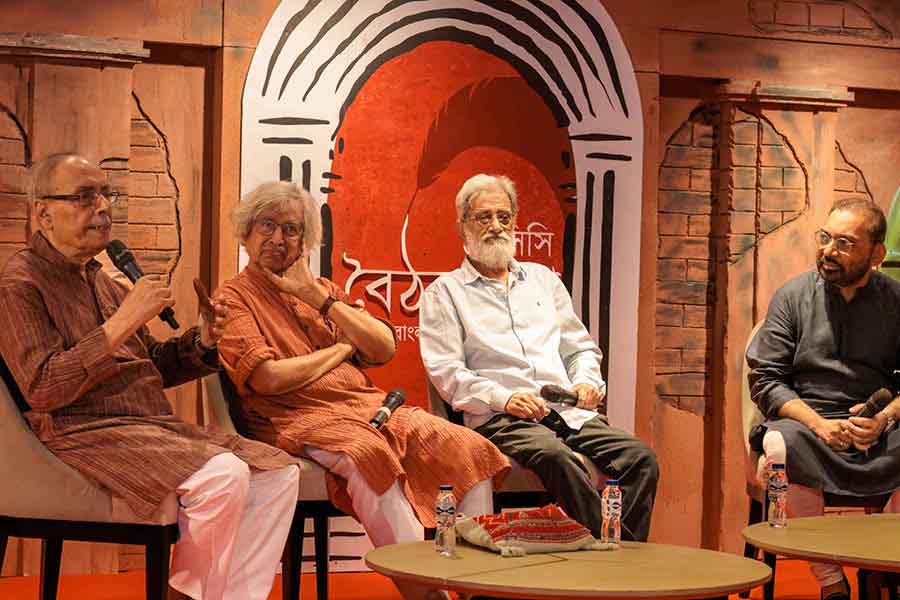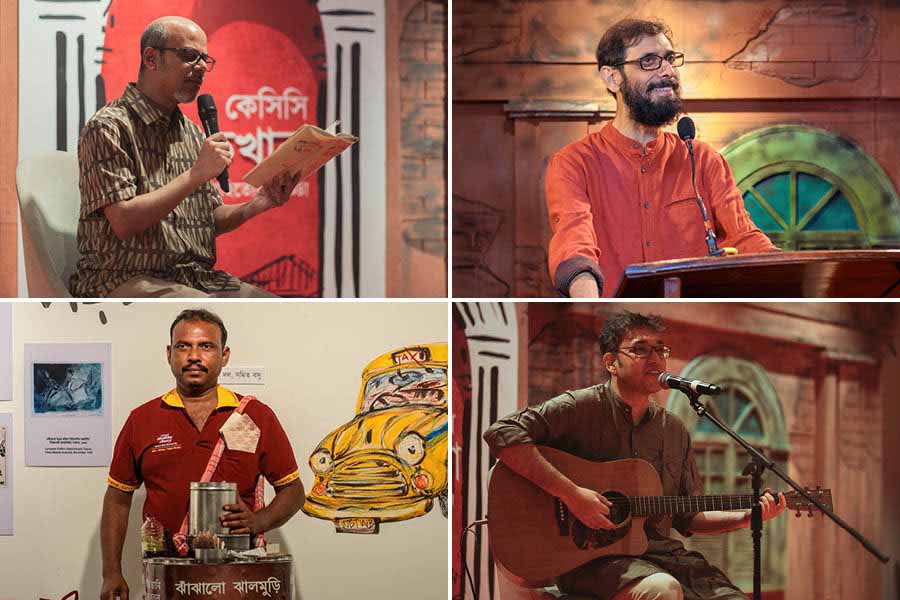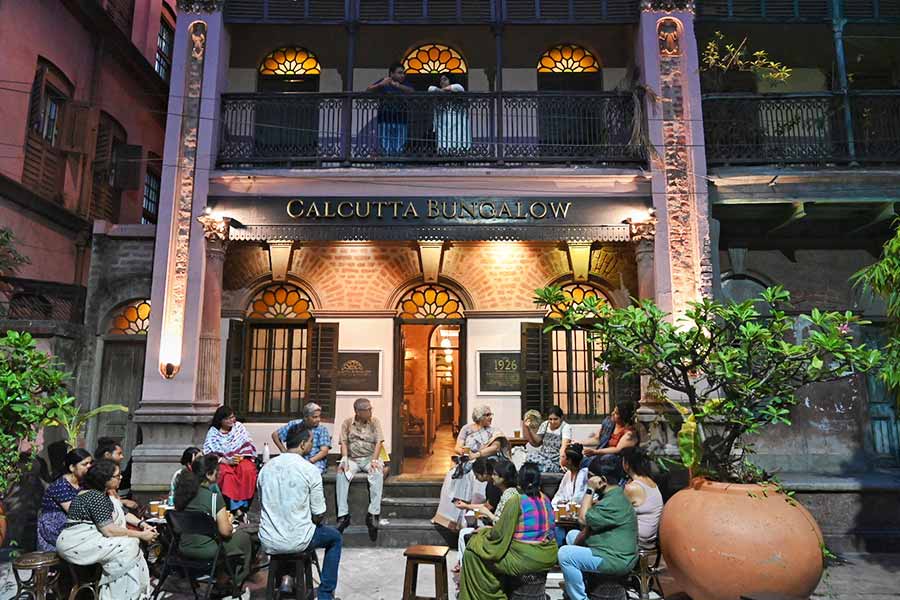Mid-April was special for culture capital Kolkata despite the unwavering heatwave. A one-of-a-kind literary festival took place in one of the popular cultural hotspots of the city — Kolkata Centre for Creativity, where doyens of literature, art, theatre, music and films came together to engage in a discourse on Bengali culture.
Titled KCC Baithakkhana — the depiction of the Bengali middle-class in Bengali literature and popular media — the event was the brainchild of authors Chandril Bhattacharya and Sanchari Mookherjee.
KCC chairperson Richa Agarwal’s keynote address, Sanchari and Chandril shedding light on the USP of the event, RJ Agni matching the wit of Chandril and musician, media and film personality and author Anindya Chatterjee slipping into the shoes of a moderator, all translated into a seamless evening. The presence of celebrated author Shirshendu Mukhopadhyay, artist Jogen Chowdhury and theatre personality Bibhas Chakraborty made the evening even more special.
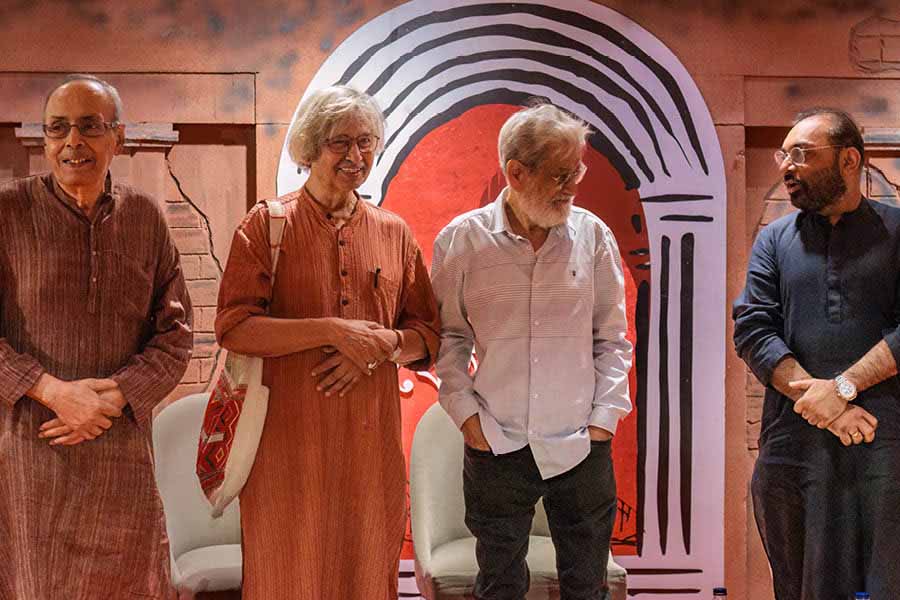
The inaugural adda among the four stalwarts was an enriching experience for the audience. Krishnungshu Gangopadhyay
My Kolkata presents snippets from the enriching conversation among three cultural icons and the ‘sutradhar’ (moderator) Anindya Chatterjee on the depiction of the Bengali middle-class in Bengali literature and popular media.
Shirshendu Mukhopadhyay, author
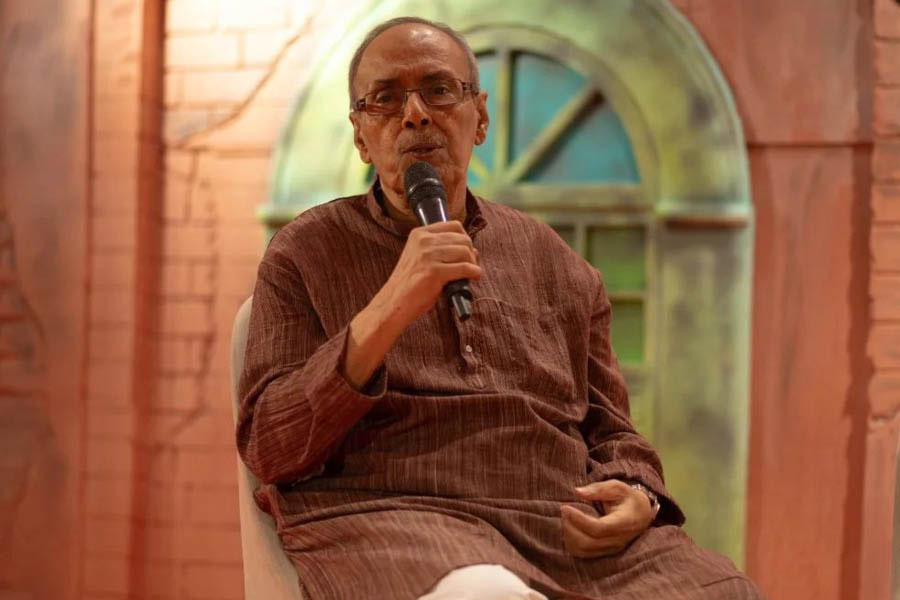
The celebrated author speaks at the event. @kccinkolkata/Instagram
Shirshendu Mukhopadhyay, the first speaker of the session, shared his experiences and observations as an 88-year-old practising author. His takes like “Madhyabitya — ei kothata ektu ambiguous” (middle-class — the word is a bit ambiguous) or “Madhyabitya kara? Culturally high and financially low” (Who are the middle-class? Those who are culturally rich and financially low) had the audience thinking.
The writer, whose observations of the society and inter-personal human relationship are at the heart of many of his works, reflected on the volatile societal understanding of the various economic strata. Talking about the consumption of Bengali literature, Mukhopadhyay talked about the strong reader base among the middle-class, making it “of the madhyabitya, for the madhyabitya, by the madhyabitya” (of the middle-class, for the middle-class, by the middle-class)
Jogen Chowdhury, artist
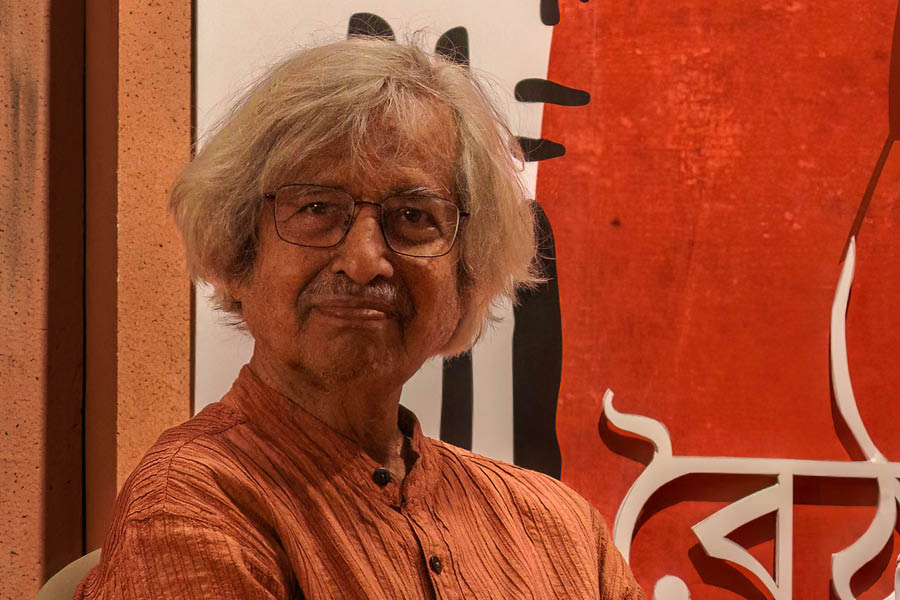
Jogen Chowdhury’s candidness about his illustrious career was inspiring for many in the audience. Krishnungshu Gangopadhyay
The Partition of Bengal and its aftermath shaped the life and works of Jogen Chowdhury. The octogenarian, who travelled to Paris in 1965 to study in Ecole des Beaux Arts and later joined Kala Bhavana at Visva-Bharati, Santiniketan, as professor, attributed his understanding of human life and the depiction through his painting to his middle-class upbringing. “We migrated from East Bengal as refugees, and the initial days were full of hardship. Those days shaped me and gave me experience and confidence,” Chowdhury said.
Bibhas Chakraborty, theatrician
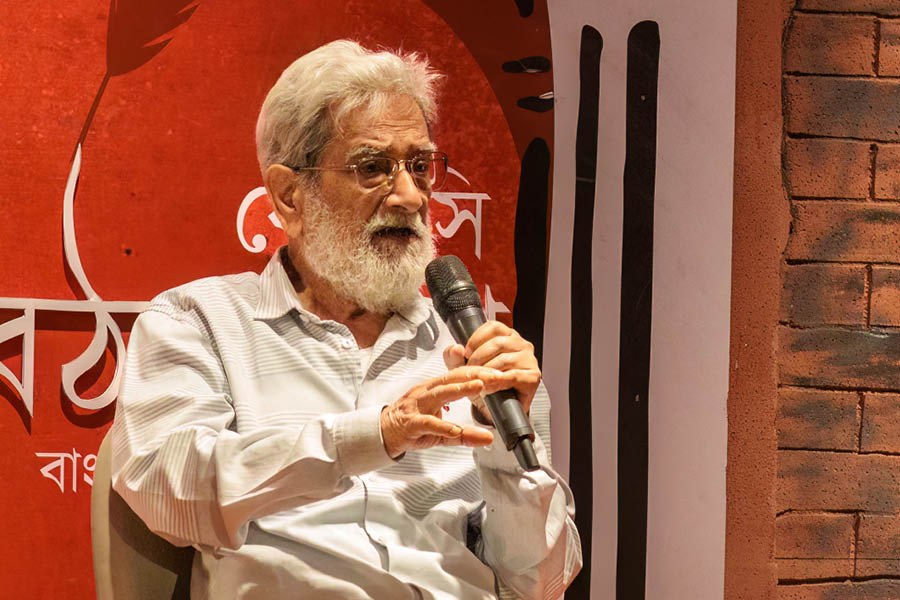
Bibhas Chakraborty’s threadbare analysis of Bengali culture and the theatre diaspora was a cerebral takeaway. Krishnungshu Gangopadhyay
The moderator’s question to Bibhas Chakraborty was on the effect of mythology and western drama on middle-class theatre and theatre groups. “Probhab phelte perechhe kina jani na kintu madhyabitya bhishon bhabe eshechhe” (whether it has been able to cast an effect I would not know but the middle-class has come into the picture time and again), said Chakraborty.
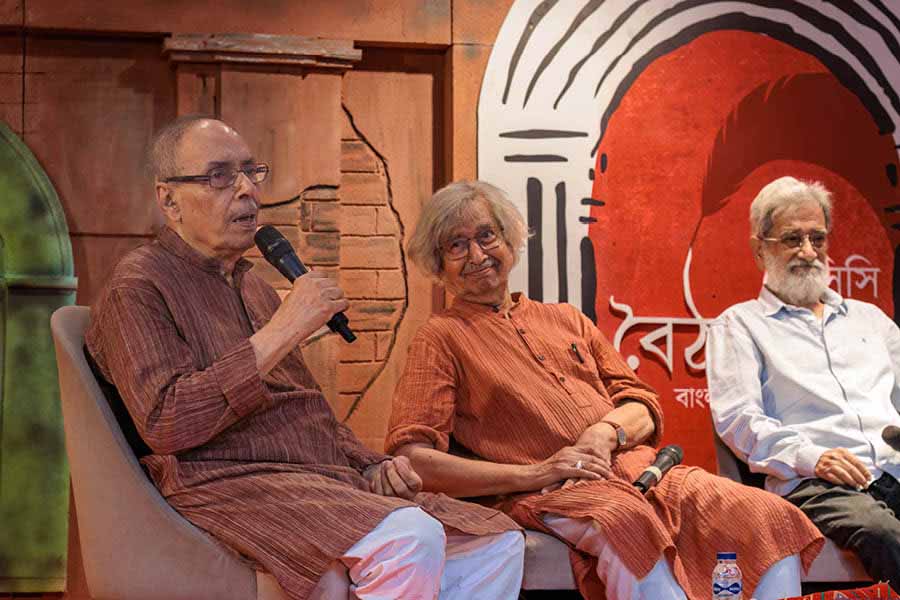
The three stalwarts were found enjoying each other’s views. Krishnungshu Gangopadhyay
The three icons explored the gradually receding elements of Bengali culture. The sense of community, the almost extinct rowak-er adda, the effect of the cultural evolution of Bengali culture in the cerebral reflections in literature and performing arts resonated with the audience.
My Kolkata caught up with Shirshendu Mukhopadhyay and Chandril Bhattacharya to pick their brains on the evolution of literature in the life of the middle-class. The octogenarian author shared: “Evolution and change are bound to happen. How our predecessors wrote, the way we write, and the writing style of our next generation are different. Literature is like a river that changes its course time and again.
Bhattacharya said: “A hard question to answer! The course of literature has indeed changed over time. I do agree that there is a decline in literature for the middle-class.”
